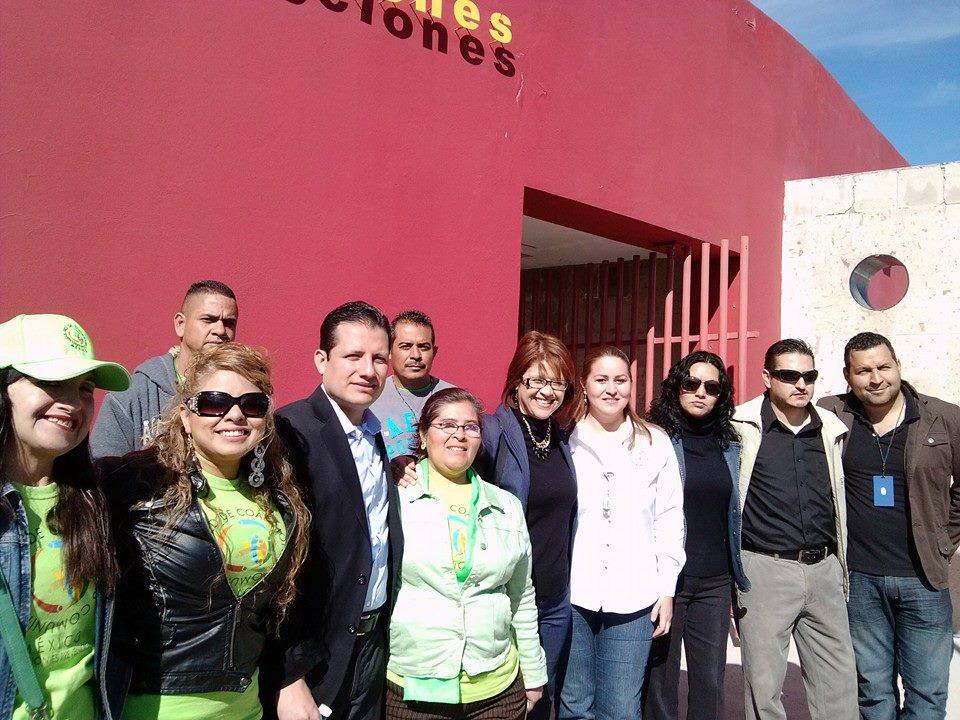 It should come as no surprise that just as U.S. communities face a number of drug-related problems, many communities in neighboring Mexico also experience similar problems. That’s why in 2008, CADCA began working on a pilot project to build community drug prevention coalitions in Mexico in communities along the U.S.-Mexico border. Today, that pilot has turned into a major coalition-building effort across Mexico, resulting in 22 community coalitions to date.
It should come as no surprise that just as U.S. communities face a number of drug-related problems, many communities in neighboring Mexico also experience similar problems. That’s why in 2008, CADCA began working on a pilot project to build community drug prevention coalitions in Mexico in communities along the U.S.-Mexico border. Today, that pilot has turned into a major coalition-building effort across Mexico, resulting in 22 community coalitions to date.
The work in Mexico is a collaboration between CADCA, Programa Compañeros and the Alliance of Border Collaboratives (ABC). Programa Compañeros and ABC identify key individuals and partners for CADCA’s coalition-development training and provide ongoing support to ensure the coalitions are using the appropriate processes and strategies. This joint effort receives financial support from the U.S. Department of State, Bureau of International Narcotics and Law Enforcement Affairs, both its U.S. and Mexico offices, and Comisión Nacional Contra las Adicciones (CONADIC), the Mexican government agency responsible for national drug policy.
This coalition-building work in Mexico began in Ciudad Juarez, Nogales and Tijuana, three border communities notorious for drug-cartel activity, with the goal of forming three coalitions. Using an approach that has worked well in other countries, local members of the community were mobilized, key leaders and organizations were brought together and provided critical training about CADCA’s community problem-solving model. By 2012, there were nine coalitions in Ciudad Juárez, Agua Prieta, Nogales and Tijuana.
“We’re very fortunate to have wonderful partners on the U.S. and Mexico side, as well as very committed community leaders in Mexico, who have helped build these coalitions from the ground up, and continue to ensure the Mexico-based coalitions succeed in the long term,” said Dr. Eduardo Hernandez, CADCA’s Vice President of International Programs.
In 2014, this coalition-building effort expanded to more cities throughout Mexico, adding 13 new coalitions. These coalitions are located in Nuevo Laredo, Monterrey, Chihuahua, Hermosillo, Durango and the State of Mexico, the most populous state.
The coalitions are working to address a wide range of issues, with many identifying youth marijuana use, inhalant use or methamphetamine use as their top issues. In addition to addressing substance use and abuse, many are working to make major improvements to their community to create safer environments for local residents.
For example, after identifying the local railroad tracks as a place where crime and illegal activity was taking place, the Chamizal Community Coalition, located in the State of Mexico, worked with local government officials to do a major cleanup of a large extension around the railroad tracks. The coalition also worked with various members of the community and the local government to build a much-needed easement ramp to make it easier for children and seniors to cross the tracks.
“These coalitions are a true testament to what can happen when the community comes together to rally behind a cause. While they don’t have the financial resources that their U.S.-based counterparts have, the Mexico coalitions are making big changes in their communities,” Dr. Hernandez said.
Just last week, the coalitions in Mexico received some much-deserved recognition when The White House Office of National Drug Control Policy honored Nora Gallegos, coordinator of the Red de Coaliciones Comunitarias Mexico, as one of their 2015 Advocates for Action. Nora has been instrumental in expanding coalitions in Mexico and ensuring their success.
CADCA currently works with countries on five continents, helping them form community coalitions to address their local substance abuse problems. Since 2005, CADCA has helped build over 140 community anti-drug coalitions in 22 countries. Click here to learn more about CADCA’s International Programs. To learn more about the network of coalitions in Mexico, visit: https://www.coaliciones.org/.


